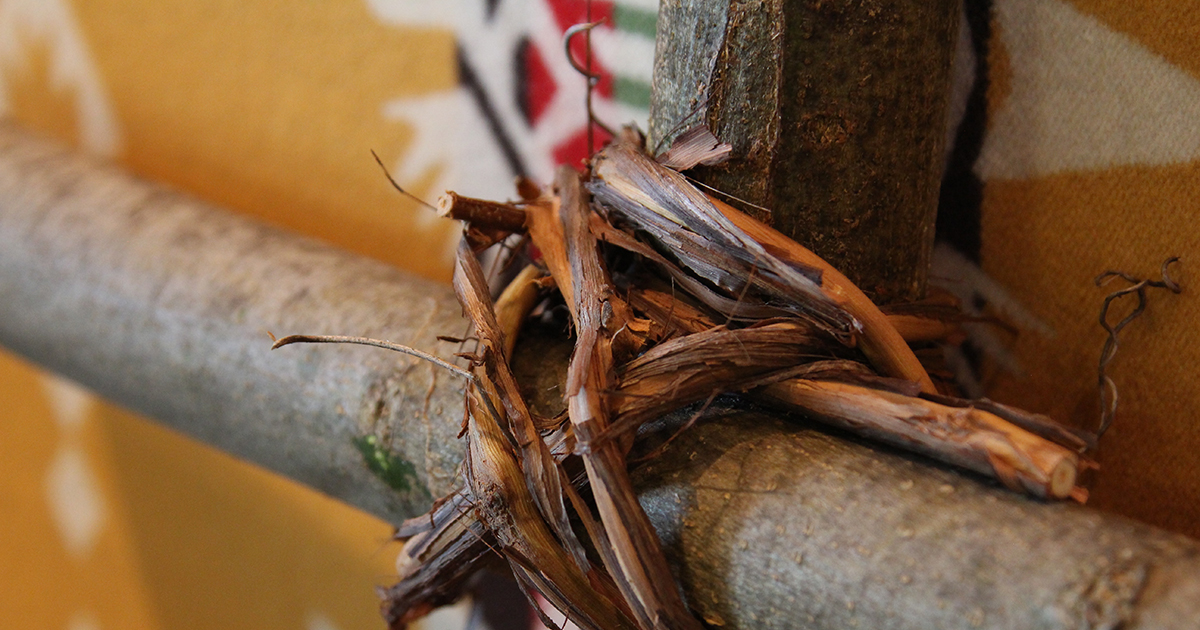View a PDF version of this document.
Last Sunday, we heard in a reading from the First Letter of Peter that baptism is “not a removal of dirt from the body but an appeal to God for a good conscience through Jesus Christ” (3:21-22). This view of baptism calls us to mind the teaching of the prophet Micah, that we “do justice, love kindness and walk humbly with God” (6:8). It points to a way of life in keeping with the Beatitudes which are in truth, calls to attitude and outlook toward others as befits life in the kingdom of God. It is entirely consistent too with the Seven Traditional Grandfather Teachings of the Cree Nations: love, respect, humility, truth, honesty, wisdom and courage.
It is from this perspective that we address the tragic shooting death of Colten Boushie on August 9, 2016 on the farm of Gerald Stanley in Biggar, Saskatchewan; the subsequent trial of Stanley; his acquittal on February 9, 2018; and the protest on the part of Indigenous and non-Indigenous people all across the country.
There is outrage over many issues concerning this case, including the following:
- the manner in which Colten’s body, while covered, lay face down in the gravel of the farmyard for twenty-four hours;
- the insensitive manner in which the RCMP notified the family of Colten’s death;
- the chaos around informing the Boushie family of Gerald Stanley’s first court appearance on August 11, 2016;
- a jury distinguished by the fact that there were no visible Indigenous people selected;
- the “excessive” security measures taken through the early days of the trial as if “to protect” those gathered from the Boushie family and the large numbers of Indigenous Peoples assembled to follow the proceedings;
- the complicated grief the Boushie family is experiencing; upon hearing the verdict they said, “We feel like Colten died again”;
- the growing anger that Canada’s justice system fails Indigenous people with an alarming consistency; and the frustration that many Canadians feel in the lack of real progress in the reform of the system; and
- the ugly reality that racism is so systemic and embedded in this country that it seems invisible until in some particular tragedy or travesty of justice it is exposed in such a way as to render it undeniable in the public realm.
Racism is the belief, reinforced by the abuse of power and privilege, that one race is invariably superior to others. Canada’s Truth and Reconciliation Commission (TRC) has exposed the historic racism toward the First Peoples of this land. Other Commissions have also exposed the shameful history of our treatment of Black, Asian, and Jewish immigrants and our internment of Japanese Canadians through WWII.
As people of faith:
- We declare that racism is evil. It is in fundamental conflict with the truth that God created all peoples with an equal love and endowed each with an equal dignity.
- We acknowledge that in so far as we are complicit in this sin, we confess our failures. We repent and long to live in more respectful ways in accord with the Word of God.
- We make a vow in baptism to strive for justice and peace among all people and to respect the dignity of every human being. Accordingly, we must make a commitment to learn about racism. We must be more aware of the behaviours that force others to feel “racialized” and correct those behaviours.
- “We join all those who are longing to escape from the slavery of prejudice, racism, anger, frustration, violence and bitterness. We wish to join all those who are re-dedicating themselves to work for reconciliation among all people in our communities and in our nation.” (Statement of February 15th by the Anglican Lutheran and Roman Catholic Bishops of Saskatchewan)
As members of The Anglican Church of Canada:
- We are bound by a Charter of Racial Justice endorsed by the General Synod in 2004. This Charter calls us to the struggle for racial justice based on “new attitudes, new understandings and new relationships” as reflected in the continuing reform of the structures, policies, and practices of our Church.
- We call every diocese in our Church to endorse and embrace the Charter of Racial Justice and encourage our bishops to commend it for endorsing and embracing by every parish within their dioceses.
- We are also bound by a commitment to Anti-Racism Training for all who serve in the councils and committees of the General Synod, and we commend this training throughout our entire Church.
- We note that a number of dioceses are requiring Anti-Racism Training for candidates for ordination and orienting people who serve on diocesan committees and councils. We call on every diocese to consider acting accordingly.
As citizens of Canada:
- We are obliged to give attention to the 94 Calls to Action from the Truth and Reconciliation Commission addressing a range of issues including child welfare, schooling, healthcare, and to reforming the justice system.
Specifically we must track action on Calls 28 and 57.
#28 calls upon “law schools in Canada to require all law students to take a course in Aboriginal People and the law, which includes the history and legacy of Residential Schools, the UN Declaration on the Rights of Indigenous Peoples, Treaties and Aboriginal Rights, Indigenous law and Indigenous Crown Relations.”
#57 calls upon “federal, provincial, and municipal governments to provide education to public servants” on the same topics.
Both of these calls reference required “skill-based training in inter-cultural competency, conflict resolution, human rights and anti-racism”.
We must also track Calls 39 and 40.
#39 calls for a national plan to collect and publish data on the criminal victimization of Aboriginal People.
#40 calls for adequately funded Aboriginal specific victim programs.
- We recognize that there is no real hope of reconciliation without confronting the racism so deeply embedded in our structures and social systems. We encourage a renewed commitment to the values in the Canadian Charter of Rights and Freedoms (1982).
- We encourage a full implementation of the United Nations Declaration on the Rights of Indigenous Peoples (2007). We call on the Prime Minister to act expeditiously on Bill 262 to bring Canadian Law in line with the UN Declaration and we request that, in that work, Indigenous Peoples be full partners.
- We support Justice Minister Jody Wilson-Rabould’s intention to rid the justice system in Canada of racism, especially her call for the review of peremptory challenge in jury selection. Currently, lawyers do not have to give reasons for excluding candidates for jury duty. This practise, says Steven Penney, a University of Alberta law professor and an author of Criminal Procedure in Canada, “invites bias on the basis of race…It’s not a value we should allow in our system.” He says the Colten Boushie case is “highlighting those flaws.”
- We do well to remember the 2013 finding of former Supreme Court Justice Frank Iacobucci in his Report, “First Nations Representation in Ontario Juries” that underrepresentation of First Nations People living on reserves was a symptom of a much larger crisis in the relationship between Ontario’s Justice System and Indigenous Peoples in that province and that this finding is not unique to Ontario.
- We commit ourselves to advocacy for a change in policy and practise.
As people of faith:
- We ask for your prayers for all whose lives continue to be impacted by this tragedy and this trial, and for the needs for reform in the justice system. With great empathy, we especially remember the Boushie family and Red Pheasant First Nation.
- We encourage you to attend or organize public events in your community. They could be opportunities for listening, learning, advocacy, and action concerning human rights, racism, and justice.
It is important that we stand together in this time. There is an urgency about our common witness, and that urgency is informed by the Word of God.
“…I despise your festivals and I take no delight in your solemn assemblies.
Even though you offer me your burnt offerings and grain offerings, I will not accept them, and the peace offerings of your fatted beasts, I will not look upon.
Take away from me the noise of your songs; to the melody of your harps I will not listen.
But let justice roll down like waters, and righteousness like an ever-flowing stream.”
(Amos 5: 22-24)
God help us.

Archbishop Fred Hiltz
Primate
The Anglican Church of Canada
The text of this statement was prepared in consultation with the following persons:
The Rt. Rev. Mark MacDonald, National Indigenous Anglican Bishop
The Rev. Canon Virginia Doctor, Indigenous Ministries Coordinator
Ms. Esther Wesley, Coordinator, Anglican Fund for Healing and Reconciliation
Ms. Melanie Delva, Reconciliation Animator
The Ven. Dr. Michael Thompson, General Secretary
Archdeacon Paul Feheley, Principal Secretary to the Primate
Ms. Meghan Kilty, Director of Communications
What can we do to address racism in our communities? Listen. Read. Learn. Act.
- Speak out when you hear or see racism.
- Read aloud the United Nations Declaration on the Rights of Indigenous Peoples in your parish
- Pledge to read the TRC’s Final Report, either as an individual or as a community.
- Write to or seek a meeting with your Member of Parliament, Member of Provincial Parliament or Member of the Legislative Assembly.
- Read a book on reconciliation or dismantling racism (e.g. The Reason We Walk by Wab Kinew, Unsettling the Settler Within by Paulette Regan).
- Watch a film from the National Film Board about anti-racism.
- Create talking circles in your parish to discuss anti-racism and justice.
- Invite and indigenous elder or leader to speak at your church or to preach at a Sunday Service.
- Participate in or organize a Kairos Blanket Exercise.
- Visit the Reconciliation Canada website to learn more about how to learn or get involved in the work of reconciliation.
- Take a free online course to learn more about Indigenous peoples in Canada.
- Visit the National Centre for Truth and Reconciliation, the Canadian Museum for Human Rights, or a Friendship Centre in your community.
- Create an indigenous working group in your parish to bring people together and create momentum.
Interested in keeping up-to-date on news, opinion, events and resources from the Anglican Church of Canada? Sign up for our email alerts .

